Give The Gift of Unlimited Medical Care
Contact us at (561) 627-2727 to give the gift of unlimited medical care to your loved ones.

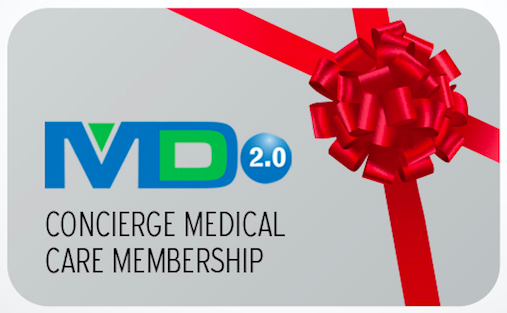
Contact us at (561) 627-2727 to give the gift of unlimited medical care to your loved ones.

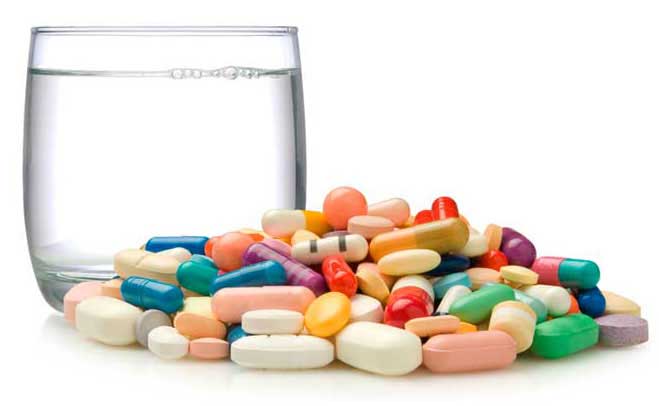
Dizziness. Falls. Dementia. Even death. What do all these side effects have in common? It’s called “polypharmacy,” which literally means “many drugs.” In our modern age of medical miracles, we’ve come to expect that there’s a drug solution for almost any problem. The fact that we’re the only other country besides New Zealand that allows drug companies to advertise their wares on television merely compounds the problem, as the famous tagline, “ask your doctor about our wonderful drug” accompanies every commercial.

Feeling kind of blah lately? Not as much energy as you had all summer? Not so willing to drag yourself to parties, or even out of bed? What about swimming? Tennis? Volleyball? Can’t think of even one good reason to chase a little white ball around with a stick when they couldn’t keep you off the course all spring and summer?
Maybe you’re depressed. Or maybe you’re just normal. We here at MD 2.0 Jupiter often begin to notice a subtle change in many of our clients around this time of year, even here in Florida, where we don’t have to face the extreme plunges in temperature. Nothing serious, just a little less enthusiasm, a bit less cheerfulness, a little less energy. Carb cravings and changes in sleep patterns are also a part of the syndrome. It doesn’t happen to everyone, but if you’re feeling something less than your usual perky self, rest assured there’s a scientific reason for it.
It has several names: “winter depression,” “seasonality,” “seasonal affective disorder (SAD),” but the fact is, researchers have determined that the shorter days in winter are the chief cause of winter blues. This likely has an ancient-survival connection, as humans learned to restrict activity when food sources were scarce. Of course, that’s not a problem today, but the tendency may still be hardwired into our biology, and people may experience symptoms on a sliding scale from barely noticeable to full-blown clinical depression.
Your body’s circadian clock, which triggers sleep and wake cycles among other bodily regulatory mechanisms, also decrees the output of serotonin, the so-called “mood” hormone. Studies have revealed that the circadian-related output of serotonin drops markedly with the decrease in light during the winter. This has led to fairly successful attempts to boost the winter mood of sufferers with light-box therapy, which employs specially built full-spectrum lamps to alleviate symptoms.
If you feel the “winter blues” are impacting your life, your concierge practitioners at MD 2.0 Jupiter can help you employ the correct light therapy, prescribe such antidepressants as generic Paxil at a low price and Prozac, or recommend cognitive behavioral therapy. Meanwhile, there are steps you can take to mitigate milder cases.
1. Stay active, preferably outdoors
Exposure to early morning light has been shown to be the most effective at reducing symptoms, as has vigorous exercise. An early morning walk or run might be all you need to boost your spirits.
2. Light up your life
If you can’t get outside, at least let the sunshine in as much as possible. Open blinds and drapes first thing in the morning, and keep them open all day.
3. Eat right
Yes, we’re still singing that same ole song, because it’s important. Simple carbs and sugars wreak havoc with your blood sugar, and hence, your mood. Lean meats, fruits, vegetables and complex carbohydrates are what your body needs to keep your brain in top shape.
Meanwhile, be sure to let us know if your low mood begins to interfere with your daily functioning. We can help.

Everyone forgets things from time to time, but with publicity these days so focused on Alzheimer’s, even middle-aged people can worry that forgetting their car keys or their mother’s phone number can signal the onset of dementia, of which Alzheimer’s disease is a subset.
Yet there are many other reasons—usually benign—why people have trouble remembering things. Let’s look at a few.
A top contender is side effects from medications. Sometimes the drugs themselves can include memory impairment as a side effect (statins for cholesterol control and some diabetes drugs, for example); other times it’s the combination of drugs that when taken alone are fine but when taken in combination produce unexpected side effects. The concierge physicians here at MD 2.0 Jupiter are prepared to discuss these concerns with any drug you are taking.
Another possible reason for memory impairment is sleep apnea. Along with many other negative effects, obstructive sleep apnea has been associated with spatial navigational memory, the kind that helps you find objects or addresses. ADHD and minor or “silent” strokes can also cause you to have difficulty remembering things. So can anxiety, depression, an underactive thyroid, and poor nutrition, especially low vitamin B12. As we age, it becomes harder to assimilate B12 from foods, which can lead to fuzzy thinking, confusion, even dementia. Please discuss all these possibilities with us.
Often, though, poor memory is simply attributable to the stress of ordinary, day-to-day life. It even happens to younger people. Look at the parents who leave their children in hot cars. Over 30 infants and children have died that way just this year. How could anybody forget their own child, we wonder. And yet, despite all the warnings, all the tricks to help parents prevent this tragedy, it happens over and over.
The answer is simple: information overload. Think of your brain as a large room. If that room has only five items in it, when asked to locate your keys in there, it’s a simple task. But if that room has 5,000 items, or 50,000 or 500,000, you’ll eventually find them, but it’ll take quite a bit longer. This is what happens to our brains as we age. When we’re children, we may have five items in our brains. But as we grow older, we’re now storing everything from our high school locker combinations to our Aunt Sally’s banana cake recipe, not to mention everything we learned in school, have read in books and newspapers, and seen on TV. And these days we’re probably also on the Internet, with its constant bombardment of information. We need to remember how to do math, the date of our niece’s baby shower, and user names and 10-digit passwords for all kinds of things. Is it any wonder our brains take a little longer to find and retrieve a single piece of information, even if we think it should be a simple thing?
The rule of thumb is, if you can’t find your keys, it’s probably nothing. If you forget what your keys are for, that’s a red flag. Either way, if you’re worried, please call us.
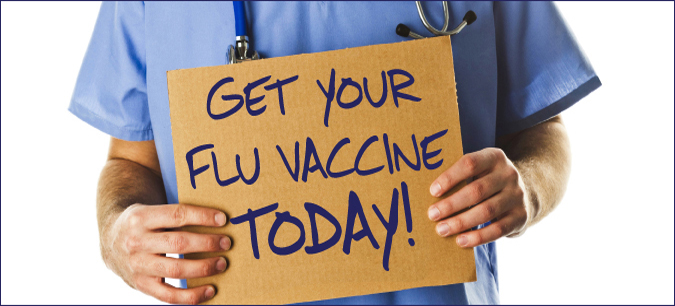
When the FluMist spray was introduced in 2003, the medical community rejoiced, hoping the nasal spray which became available in place of the annual flu shot would induce more people to get protected. Parents were happy, too, in being able to dodge the tears from their little ones.
Unfortunately, the Centers for Disease Control has decided that FluMist cannot be used for this upcoming flu season because it is ineffective. First licensed by the FDA in 2003, FluMist contained a weakened, live flu virus. The injection uses an inactivated virus. Early clinical trials seemed to show that the spray worked as well as or better than the shot, which led an estimated 20 million people to opt for FluMist last year.
In June of this year, however, the CDC released a study which showed that the nasal spray was effective only three percent of the time in children from two to 17 years of age during the 2015-2016 flu season. By contrast, the flu shot last winter was effective 49 percent of the time in adults and 63 percent in children. FluMist’s effectiveness rate seemed to plummet in 2013 when makers of the spray switched from including three strains of live virus (a trivalent) to four (a quadrivalent), although no one seems to be able to say how that impacted efficacy. The bottom line is, it’s not an option for the 2016-2017 flu season.
Keep in mind that the influenza virus kills thousands of people each year, so the flu shot is strongly recommended. Thus, the concierge physicians here at MD 2.0 Jupiter want to offer a few tips on how to make it a little less ouch-inducing for our clients.
1. Distraction seems to work best, not only for children but for adults, as well. Don’t look at the needle. Check out your smart phone, daydream about your next vacation, replay Sunday’s game in your head. Have your kids blow bubbles, play with a toy, eat a cookie (and don’t make a big thing out of getting a shot—treat it casually in front of them).
2. For fearful or pain-sensitive adults and children, let us know. We can administer a local anesthetic cream to the skin prior to the injection.
3. Hold your breath before and during the injection. This increases blood pressure which helps to decrease pain sensitivity.
4. Relax your muscles as much as possible before receiving the shot. Tensing up causes more pain both during and after the injection.
5. Apply either ice or a warm compress (try both to see which works best for you) to the site after the injection, and be sure to use your arm as much as possible in the ensuing hours to increase circulation.
6. If soreness persists after three days, call us! That’s why we’re here!
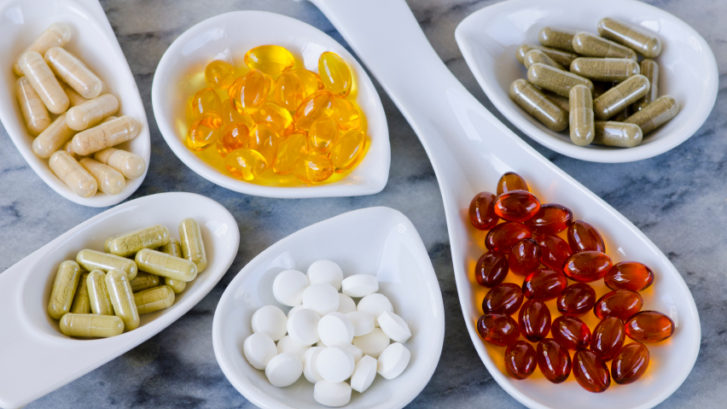
When those of us who practice concierge medicine visit with our patients, we often find they’re self-dosing with numerous over-the-counter supplements, everything from multivitamins to herbal supplements to mysterious concoctions meant to prevent various illnesses, aid in weight loss and body building, even enhance sexual performance.
With over 30,000 supplements on the market today, most of them unregulated, we are concerned that our patients may be unaware of hidden side effects and even dangers with many of the pills or concoctions they innocently consume. Between 2007 and 2012, the FDA received reports of more than 6,300 reports of serious adverse events linked to dietary supplements, including 115 deaths and over 2,100 hospitalizations.
And yet, many continue to take these vitamins and supplements in the belief that—because they’re “natural” or that they’re sold over the counter—they can’t do you any harm. A 1994 law (the Dietary Health and Education Supplement Act) actually prevents the FDA from regulating dietary supplements, or removing them from sale unless it can prove a supplement is unsafe.
Thus, many supplements sold over the counter are unregulated; analysis of some supplements have found little or none of the advertised content actually existed in the product. But even when the ingredients in supplements contain exactly what they’re supposed to, that doesn’t necessarily mean they’re safe. They can interact with other supplements and prescription medications you’re taking, interfering with effectiveness. And they can cause other problems.
Most people have heard of the dangers associated with some of the diet supplements targeted for weight loss and body building. However, sometimes even the most innocuous-seeming supplements may do more harm than good. For example, you may not be aware that vitamins A and E are not water soluble, and will not be excreted in the urine. Instead, they can build up in the body’s tissues and lead to an inadvertent overdose. Another example: Vitamin E and beta carotene supplements can actually increase the chances of developing lung cancer in smokers.
Herbal supplements raise similar concerns. St. John’s Wort, for instance, is sold over the counter for mild depression. Some potential side effects include dizziness, sun sensitivity, insomnia, anxiety and headaches. It can also reduce the effectiveness of birth control pills and certain heart medications. Fish oil can cause nausea and diarrhea, and increase the levels of LDL (bad) cholesterol and increase the risk of bleeding. Some people have suffered such severe liver damage with green tea extract that they required a liver transplant.
The fact is, any foreign substance introduced into the body can cause a negative reaction. Just ask anyone with a peanut allergy. Remember: “Natural” doesn’t necessarily mean safe. Tobacco is “natural.” So is poison ivy, ragweed, and deadly nightshade.
Before you take any supplement, check out the source for quality, and always mention it to your doctor. We here at MD 2.0 Jupiter are thoroughly conversant with dietary supplements and their pros and cons, and stand ready to discuss any questions or concerns you may have.
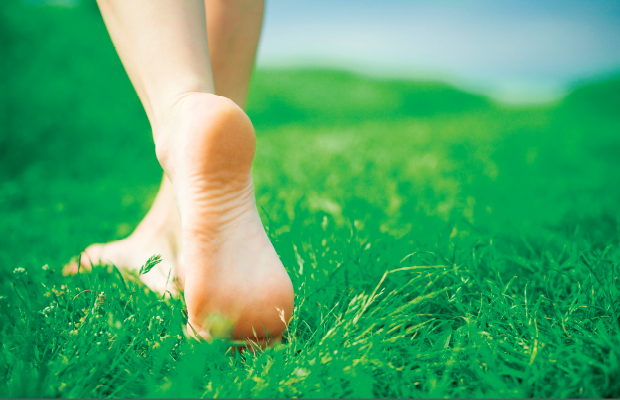
So Earth is now a verb? It is if you believe the latest research on the positive health effects of slipping off your shoes and walking barefoot on the ground.
Something we all did as kids—and probably haven’t done much since—has been said to: reduce blood sugar levels by 31%; increase levels of immune-boosting globulins; increase concentrations of the thyroid hormone thyroxin; combat insomnia; speed wound healing and reduce pain.
Other claims for “Earthing” include higher energy levels and a better response to stress. Advocates contend that the exposure to the free electrons available when your feet touch the ground reduces inflammation in the body and thus impacts such varied ailments as diabetes, cardiovascular disease and thyroid disorders, among others.
Not bad for something that’s free and as simple as cloud-watching.
The term “Earthing” was coined by Clinton Ober who, with Dr. Stephen T. Sinatra, led the research into the effects of barefoot contact with the earth. It is based on the principle that our bodies’ electrical rhythms connect with the earth’s electrical field when we are in direct contact with the ground. It doesn’t work if you’re wearing shoes, because the soles interrupt the electrical connection.
Scientists have known for decades that the surface of the Earth releases a supply of free and mobile electrons in unlimited quantities. What they’ve discovered in the last few years is that, when your skin comes into contact with the ground, millions of these negatively charged particles are released into your body, according to Sinatra.
While some critics (such as Dr. Andrew Weil) advocate more research to confirm the many claims for the benefits of Earthing, most say it can’t hurt to try it. Which is all its proponents are suggesting.
What does this mean for you? It means that, for the price of slipping off your shoes and standing on the earth, you may be able to improve your well-being in ways you wouldn’t think of.
Here are the basics of Earthing:

You may not have heard of qigong (pronounced “chee-kung”), but you’re almost certainly familiar with tai chi, the ancient form of Chinese exercise. Qi (sometimes spelled “chi”) means breath or energy, and gong means work. So qigong means energy or breath work, and tai chi is the moving or exercise form of qigong. Unlike tai chi, however, qigong is not related to the martial arts.
While self-treatment should never replace competent medical care, the practice of qigong may complement whatever treatment you’re receiving from your doctor.
It entails specific body postures, gentle movement, rhythmic breathing and visualization. The gentle, flowing qigong exercises can help calm the body and mind, as well as replenish energy depleted by day-to-day stress, poor health habits, or illness. It has been reported to benefit such diverse conditions as depression and anxiety, headaches and other chronic pain, addictions, insomnia, and heart ailments, including high blood pressure. It also has been shown to improve circulation, balance and muscle control. Studies done at the University of California, Irvine, have shown that the practice of qigong increases both alpha waves in the brain, which are calming, and beta waves, which help to sharpen focus.
Not bad for a low-impact, equipment-free, low-cost or even free activity!
The postures and breathing techniques are simple enough that anyone, at any age and in any state of health, can learn them, quickly and easily. Unlike tai chi, there are no long forms to memorize. Qigong may be done standing, sitting or even lying down—different exercises have different requirements. It can be done anywhere indoors or outdoors, in any comfortable, loose-fitting clothing. You can even do some of the postures, movements, breathing and visualizations while standing in line, and no one will know!
You can take classes in qigong (costs average $10-$20 per class), learn from a book or DVD, or from the numerous online courses available.
Meanwhile, here’s a quick exercise that will introduce you to the immediate benefits of qigong.
Stand with your feet comfortably apart, tailbone tucked under. Breathe slowly and deeply through your nose (your mouth stays closed).
Now slowly reach your arms overhead (as if signaling a touchdown) and imagine you’re holding a beach ball filled with positive energy. Still breathing deeply, slowly lower your hands to chest height, then pause, breathe once more, then bring your hands to your tummy, and imagine you’re guiding that positive energy into your body. Smile!

Diabetes Mellitus or DM is a serious, non-communicable disease that affects a body’s capability to produce insulin, use insulin, or both, to stabilize blood glucose level. According to the Centers for Disease Control and Prevention’s (CDC) statistics report, about 29.1 million Americans are suffering from it, where 21 million are diagnosed cases while 8.1 million remain undiagnosed. It is also the 7th cause of death in the US in 2010. A common misconception about the condition states that only people who are 40 years old and up suffer from it. Truth be told, the prevalence of diabetes to people who are less than 30 years old is gradually increasing. In fact, about 1.7 million cases were divulged in 2012.
Diabetes Complications
Diabetes should be managed properly at all times. Unfortunately, if you continue to have an unhealthy diet or if you fail to control your blood-sugar through medications, complications may arise. Here are some medical conditions that you have to face, caused by the uncontrolled glucose:
Proper Diabetes Management
Once you have learned that you have an abnormally concentrated blood glucose, you have to make sure that you will manage your condition immediately to avoid complications. Visit MD 2.0’s concierge doctors and medical practitioners. We can provide you personalized and comprehensive health care to help you treat this properly. Appropriate medication will be given, depending on your condition. You will either be required to receive oral medicines or insulin shots to stabilize your blood glucose.
You must not rely on these medications. It is important that you maintain a healthy lifestyle, too. First, you have to alter your diet. Eat well by choosing carbs that are packed with fiber as these will not spike your blood sugar. Learn how to balance your diet by portioning your food. It can be hard at first but you will eventually get the hang of it. There are a lot of meal guides available on the internet. Choose the right recipes that will not aggravate your condition and always consult your doctors.
Physical activities must also be done 30 to 60 minutes a day to improve the production and efficiency of the insulin in your body. This will also help enhance weight loss, improve blood circulation, and decreases chances of hypertension. If you want to increase your activities, you need to visit MD 2.0 once again to evaluate the presence of macro- and microvascular complication that could possibly be worsened due to exercise programs.
Proper diabetes management should be executed to keep you healthy at all times. It may be hard at first, but knowing the basics will help you ensure that you can lessen the complications your condition brings. Ask support from your family. Educating them about your condition will also help you live a healthy lifestyle.
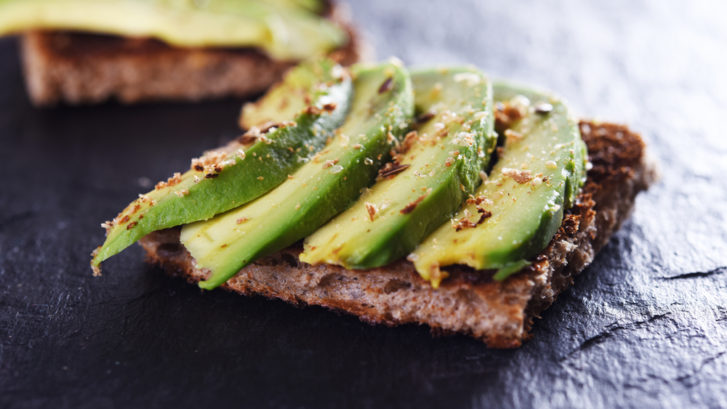
Avocado Toast
Perhaps one of the easiest summer snacks is some avocado on a piece of toast, with salt and pepper. It’s best to use a very ripe avocado, mash it with a fork and then spread on your favorite toast. A drizzle of olive oil gives it a nice flavor and an extra boost of healthy fat!
Mini Caprese Skewers
Assemble toothpick skewers of cherry tomatoes, small pieces or rolled balls of fresh mozzarella cheese, and basil leaves. Drizzle with a balsamic glaze or just a dash of balsamic vinegar and olive oil. Add some sea salt for a little crunch!
Frozen Fruit and Yogurt Bites
You can do this with just about any fruit. Some that we have found to taste great are blueberries, raspberries and strawberries – all summer favorites. Simply mix the fruit with greek yogurt, spread out onto a baking sheet lined with wax paper, and freeze. When you take it out of the freezer it will break apart like bark. These are great on an especially warm day and pack a little protein from the yogurt.
Oven-Dried Strawberries
Bake fresh strawberries in the oven for 3 hours at 210 degrees. They will dehydrate and taste like candy, but are completely healthy and all-natural. The nice thing about this snack is that they can be taken on-the-go for a quick snack when you need it. These are much better than hitting the vending machine when you just need a snack!
Frozen Grapes
Wash your fresh grapes and put them right in the freezer. Although this is such a simple maneuver, the results are delicious and super refreshing during the hottest season of the year! Frozen grapes are like nature’s candy and so easy to make!
Crunchy Roasted Chickpeas
Love potato chips but looking for a healthier option without losing the crunch? Place chickpeas on a baking sheet lined with parchment paper and bake at 450 degrees for 30 minutes. After they are done baking, mix them with olive oil and seasoning of your choice. Yum!
Summer is one of the best times for snacking. Whether you are going to soccer games, on family vacations, or keeping busy at home, snacks come in handy for everyone! Snacks don’t have to be full of fat, fried, or packed full of preservatives. Take advantage of the vast array of fruits and veggies available in the summertime, and make them into healthy snacks that are delicious for the whole family!